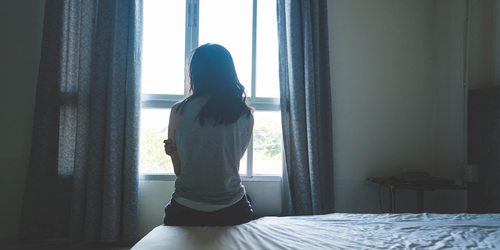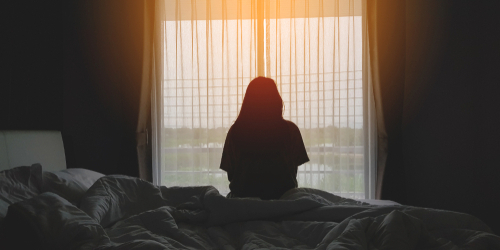France and Sweden announce new global policy urging countries to criminalise the purchase of sex
Commercial Sexual Exploitation
France and Sweden have launched a new common strategy for combatting human trafficking for sexual exploitation in Europe and globally, which specifically calls on other countries to criminalise the purchase of sex.
In a joint statement announcing this bold new development, they said: “Both our countries are convinced that criminalizing the purchase of sex would be a very important step towards achieving these goals. We will therefore put this agenda in the forefront of our common advocacy for combating trafficking for sexual exploitation in Europe and globally.”
The strategy is a response to the 2030 Agenda for Sustainable Development in which there are several goals that seek to address human trafficking, gender equality, sexual exploitation and violence against women and children, that every country has a duty to combat.
Challenging demand
The main focus of the common strategy is the need to reduce the demand for girls and women in prostitution, both in Europe and globally. France and Sweden highlight the link between trafficking for sexual exploitation and prostitution which have been made known in numerous studies and also by the European Parliament in resolution (2013/2103(INI)).
Together with other countries (Norway, Iceland, Canada, Northern Ireland, Ireland and Israel), France and Sweden have introduced legislation where the purchase of sexual services constitute a criminal act. The person in prostitution is also offered assistance and support to exit prostitution.
Studies have shown that this type of legislation - one that targets the buyer as opposed to the seller - has proved to be effective in both decreasing demand for paid sex and reducing prostitution levels.
In Sweden, this type of legislation has been in force for twenty years. The joint statement makes reference to that Sweden is now considered a poor market for trafficking for sexual exploitation because of this legislation.
France enacted similar legislation in 2016. The French Supreme Court has ruled that the law is constitutional and in its ruling states that the law works “by depriving pimps of their profits” and that the law “fights against this activity and against the sexual exploitation of human beings, criminal activities founded on coercion and enslavement.” Polling carried out this year showed that 78 per cent of French people supported the Act and that 74 per cent of French people think that the purchase of sex is a form of violence.
Prostitution “should always be perceived as an exploitation of someone’s vulnerability”
In the joint statement, both nations also said they were against ‘normalising prostitution’: “France and Sweden have taken a clear position against normalizing prostitution as work. Our view is that prostitution should always be perceived as an exploitation of someone’s vulnerability – thus prostitution should never be considered a job. To consider prostitution as legal ‘sex work’, decriminalizing the sex industry in general and making procuring legal is not a solution to keeping women and children in vulnerable situations safe from violence and exploitation, but has the opposite effect and expose them to higher level of violence, while at the same time encouraging prostitution markets — and thus the number of women and children suffering abuse — to grow.”
Research reveals that homelessness, living in care, debt and substance abuse, are all common experiences before entering into prostitution. Many enter prostitution at a young age, often under 18 years old, either through grooming or troubled family circumstances. Studies show that high numbers of women in prostitution have experienced coercion. In a 2012 study of 114 women in prostitution in London, 50 per cent said they had experienced coercion from a partner, pimp or relative.
The effects of prostitution are also damaging for the body’s mental and physical state. Whether that is from violence or coercion from buyers or pimps or severe health problems such as Post Traumatic Stress Disorder and substance abuse and diseases.
Given the harms associated with prostitution and the way many become involved in it, it is best understood as a form of exploitation than as a job like other forms of work.
Read the full Joint statement from The Ministry for Foreign Affairs in France and from the Ministry for Foreign Affairs in Sweden.
CARE’s response from our Senior Policy Officer on Human Trafficking, Louise Gleich:
“Research has consistently shown that criminalising the purchase of sex is an effective legislative tool for reducing the demand for paid sex, which drives human trafficking, and also reducing the number of people trapped in prostitution.
“Therefore, it is great to see both France and Sweden use their influence to push for more countries to adopt this legislative model on the global stage.
“CARE hopes that this will influence parliamentarians at both Westminster and Holyrood to introduce similar legislation here.”
Join our not for sale campaign
At CARE we have recently launched our not for sale campaign to raise vital funds and awareness to continue our advocacy work calling for new laws in England and Wales and Scotland to criminalise the purchase of sex (Northern Ireland already has such a law in place – we worked as Principal Advisors to Lord Morrow to achieve this).
You can partner with us in this campaign by going to www.care.org.uk/notforsale

CARE's not for sale campaign 2019



Share story
France and Sweden announce new global policy urging countries to criminalise the purchase of sex